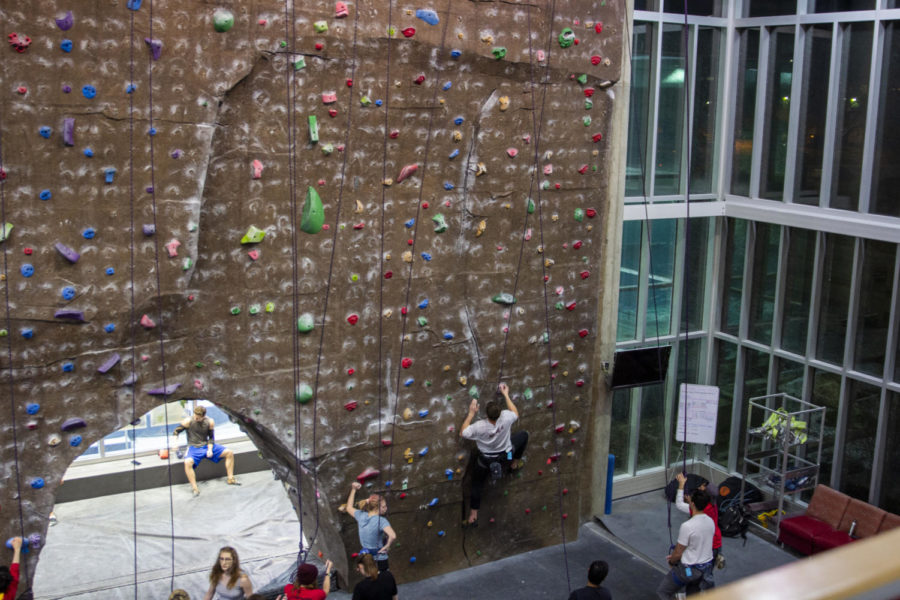Being healthy encompasses more than just working out
February 25, 2020
Pumping iron at the gym and eating avocados are not the only factors to being healthy, according to some members of the kinesiology department.
There are large differences between how society and professionals view health in that many people associate weight loss and mile time to being healthy. However, those who specialize in health assert that health encompasses so much more.
The World Health Organization defines health as, “a state of complete physical, mental and social well-being and not merely the absence of disease or infirmity.”
At Iowa State, the Peer Wellness Educators serve to educate the student body about the eight dimensions of well-being through outreach presentations and their BeWellHut. The organization primarily concerns itself with physical, intellectual, occupational, spiritual, environmental, financial, social and emotional wellness.
This holistic approach suggests an overall mindfulness and reflection when assessing an individual’s health level. It considers traditional aspects of health such as eating well and exercising, but it also captures financial stability or awareness of the environment.
Bethany Doom, a senior in kinesiology and health and a Peer Wellness Educator of two years, analyzes how simple it can be to forget aspects of health in college.
“If you’re staying up for 24 hours before finals studying, then you’re not treating yourself well to function well,” Doom said.
Stress levels and mental health can be difficult to conceptualize, but even physical activity can be difficult to evaluate.
Jacob Meyer, assistant professor of kinesiology, emphasizes this is partially due to misconceptions about exercising.
Working out includes activities like going to the gym or running, but physical activity like going for a walk around the block can be just as important, Meyer said.
Positive benefits associated with physical activity can be an improved mood or a simple mental escape from behavior of extended inactivity.
“It doesn’t really matter what you do,” Meyer said. “It just matters that you do it.”
While that attitude may sound easy, motivating someone to exercise offers its own challenges.
For the general populace, the largest barrier to working out regularly is time, and some of the biggest barriers to exercising for those with depression are feelings of motivation, Meyer said.
Lily Harvison, senior in kinesiology and health and a Peer Wellness Educator, said another barrier preventing unhealthy people from becoming healthy is a lack of education.
“It’s not easy to change something or start something new if you don’t even know you need to,” Harvison said.
Education can be difficult to overcome if a student does not actively enroll in health-focused coursework, and even Harvison said she may not always be as healthy as the Peer Wellness Educators advise.
People recognizing their own unhealthy decisions and how to improve them can entail the functional definition of health as people are reflecting on their own choices and looking at how they can live a more healthy lifestyle.
Being completely well all the time may be the dream, but Meyer said that striving towards being healthy is all that can be asked.
“Health is more of a continuum that we’re all on somewhere,” Meyer said.
















